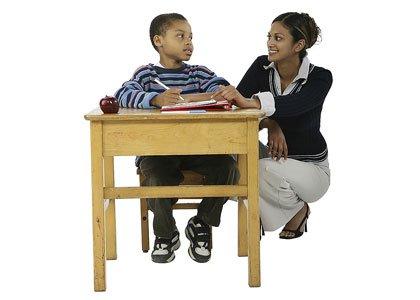Are you concerned your child struggles to learn in school? Worried that he did not make the academic progress you expected this year? Or, do you have a nagging feeling your daughter is not getting the classroom support she needs to reach her full potential?
If you answered yes to any of these questions, perhaps it is time to take a closer look at your child’s academic profile. It’s the first step in determining whether he or she would benefit from special education services. There is full range of programs and interventions that may help a student who’s doing poorly in school get back on track.
I feel it is important to address a lingering issue that can create a barrier to seeking services. The concern that a child may be labeled is valid. There was once a time when special education was stigmatized. Children, parents and even teachers held students assigned to special education classrooms in low regard. Traditionally, special education was a “no man’s land” of low expectations for students identified as “slow.”
Now, the rights of people with learning disabilities such as dyslexia (a reading decoding and language processing disorder) and ADHD (attention deficit hyper-activity disorder) are protected by federal mandates that require local school districts to provide a high quality education that meets the needs of all students and deliver services in the least restricted environment.
In our democratic society, a law is only as good as a citizen’s commitment to seeing it enforced. In matters concerning your child’s education, you or the guardian is in charge of ensuring he receives an education that meets his needs. I cannot over-emphasize this, parents must take the lead and continue to pursue a proper education until all options are explored and services secured.
It is important to know children with learning disabilities can and do succeed in school and life. Successful people who overcame a learning disorder include Baltimore’s own Olympic Gold Medalist Michael Phelps; Harry Belafonte; Tony Bennett; Danny Glover; Tom Cruise; Dexter Scott King; Anderson Cooper; Jay Leno; and Richard Branson.
Special Education covers a range challenges to successful learning in addition to dyslexia and ADHD: emotional disorders, autism, hearing impairment, visual impairment, speech and language impairment cognitive challenges and developmental delay.
The first step is to know some of the symptoms of a learning impairment. Generally speaking the earlier you identify the need for special education services, the more successful the outcomes. HealthGuide a nonprofit organization dedicated to providing families the latest research help them make the best academic choices for their children has developed an excellent list of signs that may indicate a child has a learning disability:
Preschool— Problems pronouncing words; Trouble finding the right word; Difficulty rhyming; Trouble learning the alphabet, numbers, colors, shapes, days of the week; Difficulty following directions or learning routines; Difficulty controlling crayons, pencils, and scissors or coloring within the lines; and Trouble with buttons, zippers, snaps, learning to tie shoes.
Ages 5-9— Trouble learning the connection between letters and sounds; Unable to blend sounds to make words; Confuses basic words when reading; Consistently misspells words and makes frequent reading errors; Trouble learning basic math concepts; Difficulty telling time and remembering sequences; and Slow to learn new skills.
Ages 10-13— Difficulty with reading comprehension or math skills; Trouble with open-ended test questions and word problems; Dislikes reading and writing, avoids reading aloud; Spells the same word differently in a single document; Poor organizational skills (bedroom, homework, desk is messy and disorganized); Trouble following classroom discussions and expressing thoughts aloud; and Poor handwriting.
This list should only be used to help guide your next steps. Should you feel your child’s challenges warrant further evaluation, I recommend you start by bringing your concerns to the pediatrician.
“Don’t assume you know what your child’s problem is, even if the symptoms seem clear, says Melinda Smith, M.A., senior editor of HealthGuide. “It’s important to have your child tested and evaluated by a qualified professional.
That said, you should trust your instincts. If you think something is wrong, listen to your gut. If you feel that a teacher or doctor is minimizing your concerns, seek a second opinion. Don’t let anyone tell you to ‘wait and see’ or ‘don’t worry about it’ if you see your child struggling.
Jayne Matthews Hopson writes about education matters because “only the educated are free.”
